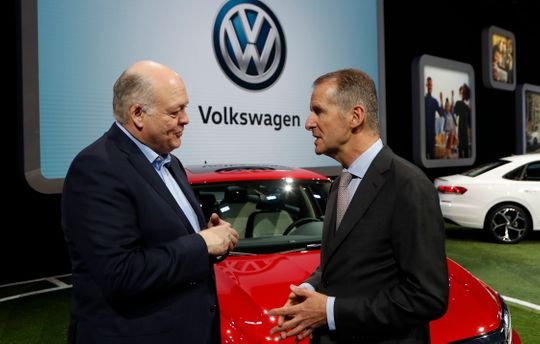Volkswagen and Ford are getting serious about their partnership by officially announcing plans to collaborate on a midsized pickup truck in 2022 acting as a successor to the Ford Ranger and Volkswagen Amarok in some regions. In addition, the work would result in a Ford-developed one-ton van and a smaller city van from VW. The automakers have also signed a memorandum of understanding to investigate future alliances on shared EVs, autonomous vehicles, and mobility services. Both companies are quite clear that there are no plans for either business to take any ownership in the other as part of this alliance.
Ford is clear that its work developing the next-gen Ranger and Amarok is focused on the African, European, and South African markets. During a conference call announcing the partnership, representatives from the Blue Oval and VW both said that there was at least a possibility of the trucks coming to the U.S., although it required more discussion from both companies.
The Ford-developed one-ton van will carry the Transit Custom branding and won't be available in the U.S. VW didn't say what model name it planned to use on the commercial vehicle.
The companies had the least to say about the city van that VW is creating. The automaker confirmed that it planned to offer both gasoline-fueled and electric powertrains, though.
To keep these models from appearing like badge-engineered copies of each other, Ford's Jim Farley said the vehicles would have distinctive driving dynamics, and they would be "discernably different products."
Ford boss Jim Hackett and his VW counterpart Herbert Diess both seemed eager to collaborate on EVs in the future. There's even a "constructive, open dialog" about VW giving the Blue Oval access to its MEB electric vehicle platform, especially for models in Europe and China. At least for the moment, the companies aren't yet ready to discuss collaboration on mainstream passenger cars.

